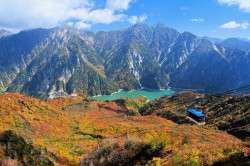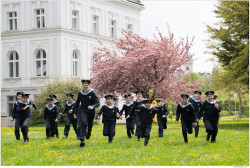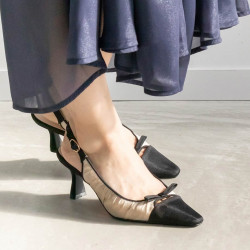
Originally published on metropolis.co.jp on April 2011
LITTLE TOOLS
- The website www.targetmap.com revealed that the average Japanese man has a penis measuring just 4.3 inches (10.92 cm) in length, among the smallest in the world and tied with China, but still bigger than South Korea (3.8 inches; 9.66 cm).
- A 48-year-old Chinese man who had been living in Japan illegally since 2000 turned himself in to authorities in Nagasaki. He wanted to be deported as he feared fallout from the crippled nuclear reactors in quake-hit Fukushima.
- Thai authorities have determined that their own security forces were not responsible for the death of Reuters cameraman Hiro Muramoto, who died last April after being shot during riots in Bangkok. They did say, however, that if new evidence arose, they might change their mind on that.
COMINGS AND GOINGS
- Bird-watchers breathed a sigh of relief when a 60-year-old albatross named Wisdom, the oldest known wild bird in the US, returned to a remote island near Hawaii after surviving the March 11 tsunami.
- Former comedian and current Miyazaki Governor Hideo Higashikokubaru threw his hat into the ring to challenge Tokyo Guv Shintaro Ishihara for the top job in the capital.
- British drug-maker AstraZeneca and the Japanese government were ordered by the Tokyo District Court to pay out ¥17.6 million to two plaintiffs over side effects from the lung cancer drug Iressa.
- The International Commission on Radiological Protection recommended that the Japanese government “temporarily raise the annual limit of radiation exposure for the general public” from 1 millisievert of radiation per year to 20 to 100 millisieverts per year. Huh? It’s not like we’re changing the speed limit here… aren’t those limits set for a reason?
WHAT HAPPENS IN FUKUSHIMA DOESN’T ALWAYS STAY IN FUKUSHIMA
- Tiny amounts of radiation from the damaged nuclear plant in Fukushima reportedly floated over to Las Vegas, but apparently it was not enough to pose a health risk.
- Rainwater in Massachusetts also tested positive for low levels of radiation, likely a result of the problems in Fukushima, too.
- And, proving that radioactive particles play no favorites, small traces were also detected in Europe.
- It was revealed that a Japanese scientist warned TEPCO, the plant’s operator, two years ago that the reactors were vulnerable to a quake-tsunami double-whammy.
STRANGE BEDFELLOWS

Eparama Tuibenau
- The Red Cross Society of North Korea sent $100,000 (¥8.1 million) in aid to the Japanese Red Cross Society for victims of the March 11 earthquake and tsunami.
- Fearless leader Kim Jong Il also kicked in another $500,000 to help pro-Pyongyang Korean residents in Japan affected by the quake/tsunami.
- Serbian tennis player Novak Djokovic organized a charity soccer match and dinner involving several ATP stars that raised $100,000 for the relief effort.
- Yomiuri Giants baseball star Alex Ramirez, meanwhile, donated $1 million, as well as sending trucks stocked with medicine to the worst-hit areas.
- One of the biggest sources of aid has come from what some might consider an unlikely source—the yakuza.
FALLOUT
- The American-owned Tokyo Apache of basketball’s bj-league decided to scrap the rest of their season after the destructive earthquake and tsunami hit. They also donated $1 million to relief efforts.
- It was reported that a play concerning the effects of a tsunami that was written by an ex-elementary school principal will be published in social studies textbooks next year. “People stand no chance against the power of nature,” said author Hagemu Kumagaya, whose grandfather lost his whole family in the 1933 Showa Sanriku Tsunami.
- Tokyo’s Grand Prince Hotel Akasaka is set to be knocked down, but before that happens, the landmark will be used as a shelter for up to 1,600 people who have been evacuated due to the crisis in Fukushima.
- It was revealed that Masataka Shimizu, the president of TEPCO, whose damaged nuclear power plants have left the nation on edge since March 11, took a few days of sick leave after the disaster.
- A group of student volunteers in the tsunami-hit village of Noda in Iwate Prefecture have begun searching for photo albums amid the rubble that was once a town and handing them back to their rightful owners.
- Unlike many other nations, the Philippines decided to keep importing Japanese food with the exception of chocolate made with milk from the Fukushima area.
Compiled from reports by Japan Today, Asahi Shimbun, The Daily Yomiuri, The Japan Times, Mainichi Daily News, The Tokyo Reporter, AP, AFP, Reuters and Kyodo







